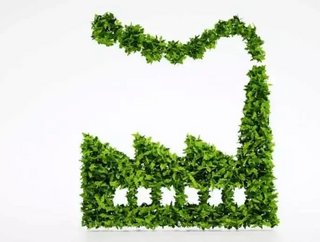Nestle USA achieves zero waste to landfill from manufacturing operations

- Nestlé USA has continually looked for ways to reuse, recycle and recover energy when disposing of manufacturing by-products – including composting, recycling, and energy production.
- Additionally, all of Nestlé USA’s factories employ ISO 14001 certified environmental management systems to help manage their environmental impact, including waste elimination.
How Nestlé is expanding this effort beyond the U.S.
- This achievement is part of Nestlé’s ongoing commitment to environmental sustainability as part of its Creating Shared Value efforts, a commitment the company is recognizing globally: 15 percent of all of Nestlé’s factories worldwide achieved zero waste for disposal for all of 2014, exceeding the company’s goal.
Nestlé USA announced today that all of its 23 factories – spanning confections, dairy, frozen and refrigerated meals, ice cream, baking ingredients, and beverages – are now landfill-free, contributing zero waste for disposal. This important milestone supports Nestlé USA’s commitment to environmentally sustainable business practices to protect future generations.
“We are incredibly proud of the effort it took to accomplish this goal,” said Paul Grimwood, Chairman and CEO Nestlé USA. “This is an especially noteworthy achievement given the breadth and complexity of our manufacturing operations across a variety of categories. We are committed to working with our employees to ensure our factories remain landfill-free and are striving for new ways to reduce our environmental impact at each stage of the product lifecycle.”
As part of this effort, Nestlé USA is continually looking for new ways to reuse, recycle and recover energy when disposing of manufacturing by-products. The company’s current efforts include composting, recycling, energy production, and the provision of safe products for animal feed.
Employees also take actions to minimize by-products, and engage in robust recycling programs and partnerships with credible waste vendors that dispose of manufacturing by-products in line with Nestlé’s environmental sustainability guidelines and standards. All of Nestlé USA’s factories employ ISO 14001 certified environmental management systems to help manage their environmental impact, including waste elimination.
“Environmental sustainability is part of Nestlé’s commitment to Creating Shared Value in society,” added Grimwood. “Our goal is for our products to not only be tastier and healthier, but also better for the environment.”
Globally, Nestlé has committed to improving resource efficiency in its operations. Fifteen percent of all of Nestlé’s factories worldwide (72 in total) achieved zero waste for disposal for all of 2014. This achievement exceeds Nestlé’s goal of having 10 percent of its global factories at this stage by 2015.
- How Smart Factories are Reshaping the Manufacturing SectorSmart Manufacturing
- Crowe UK: 2024 Manufacturing Outlook Report Explores GrowthProduction & Operations
- Top 10: Chief Manufacturing OfficersProduction & Operations
- Aerospace Insight: Where does Boeing make all of its PlanesProduction & Operations






